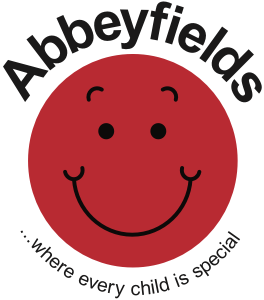“Differences were meant not to divide but to enrich.”
J H. Oldham
Subject Leader: Mr O Critchley
At Abbeyfields our Religious Education (R.E.) Curriculum is taught in line with the Northumberland Agreed Syllabus 2016 and we complement this with Discovery RE.
The curriculum for R.E. aims to ensure that all pupils:
- Know about and understand a range of religions and world views.
- Express ideas and insights about the nature, significance and impact of religions and world views.
- Gain and deploy the skills needed to engage with religions and world views.
We encourage our children to develop tolerance and respect for others’ views whilst being secure in the knowledge that their own views, opinions and feelings will be valued. Our children are taught to develop their knowledge and understanding of religions, recognising their local, national and global contexts.
Children at Abbeyfields are taught to use their subject specific language, to raise questions and begin to express their own views and questions in response to the religions and cultures that they are learning about.
Key Stage 1 pupils are taught the knowledge, skills and understanding when learning about Christianity, Judaism and Islam. Children will learn about religions through first-hand experiences with artefacts, stories, religious buildings and visitors.
We have strong links with the local churches within the community and are regularly visited by the Mustard Tree Trust who deliver assemblies to our children.
How is the subject taught?
R.E. is taught, using the Discovery RE scheme, in weekly blocks each half term. Assemblies throughout the year also allow children to gain knowledge regarding celebrations. A termly programme maps out the coverage of the teaching and learning opportunities for children to develop their knowledge and interest in this subject.
Within each R.E lesson class teachers carefully plan the specific outcomes for their year group, based upon the expected age appropriate knowledge and skills. Our teaching and learning opportunities allow all children to reflect on other religions and make comparisons to their own lives. Lessons are often delivered through an enquiry question.
New vocabulary is taught with the key emphasis on common words and phrases relating to religions. Children are introduced to and reminded of key vocabulary. Questioning is used to check their understanding and prior knowledge, before new concepts or skills are introduced. Modelling is used by class teachers to clarify expectations. Children are then given plentiful opportunities to consolidate, build upon and apply their skills and knowledge to tasks.
In R.E lessons we explain to children that they are learning to:
- Find out about different religions, faiths and beliefs.
- Accept and respect the thoughts, feelings and ideas of others.
- Compare the ideas, beliefs and religions of others to their own.
Through studying a range of people from the past and present, locally and globally, children are taught to challenge stereotypes connected to gender, wealth, disability, cultural and religious background and are educated that differences should be celebrated and are not a barrier to achievement or relationships.
Links with other subject areas, as well as our values approach, forms part of our overall ethos of celebrating diversity within school and ensures that elements of the R.E curriculum are accessed by children throughout the year.
How do we know that our children are making progress?
Ongoing assessments of the children’s knowledge and skills are observed by the class teacher. Misconceptions related to religions are explored and addressed. Prior learning is assessed before teaching new concepts in order to build on previous knowledge and scaffold learning successfully.
Our curriculum drivers are central to our curriculum. How do we promote reading, vocabulary acquisition, holistic education and diversity?
Our R.E. curriculum in school promotes our key curriculum drivers. Children are taught about the importance of building positive relationships with others. Stories from a wide range of religions emphasise the importance of caring for one another and how to be a good friend. Children are taught about the importance of ‘Belonging’, whether that is being part of a family, class, school, club or religion, they are encouraged to be proud of the person that they are, the work that they do and the choices that they make.
What wider opportunities are provided for our children?
We have strong links with the local Church within our immediate community. Children visit the church, both to take part in celebrations, as well as learn about Christian values and beliefs. Visits enhance teaching opportunities as children take part in services and learn the meaning behind them.
Children are also given the opportunity to visit places of worship from other religions. Where this is not always possible, members of other religious communities come into school or communicate with the children to provide supportive knowledge and workshops where possible for the children.

